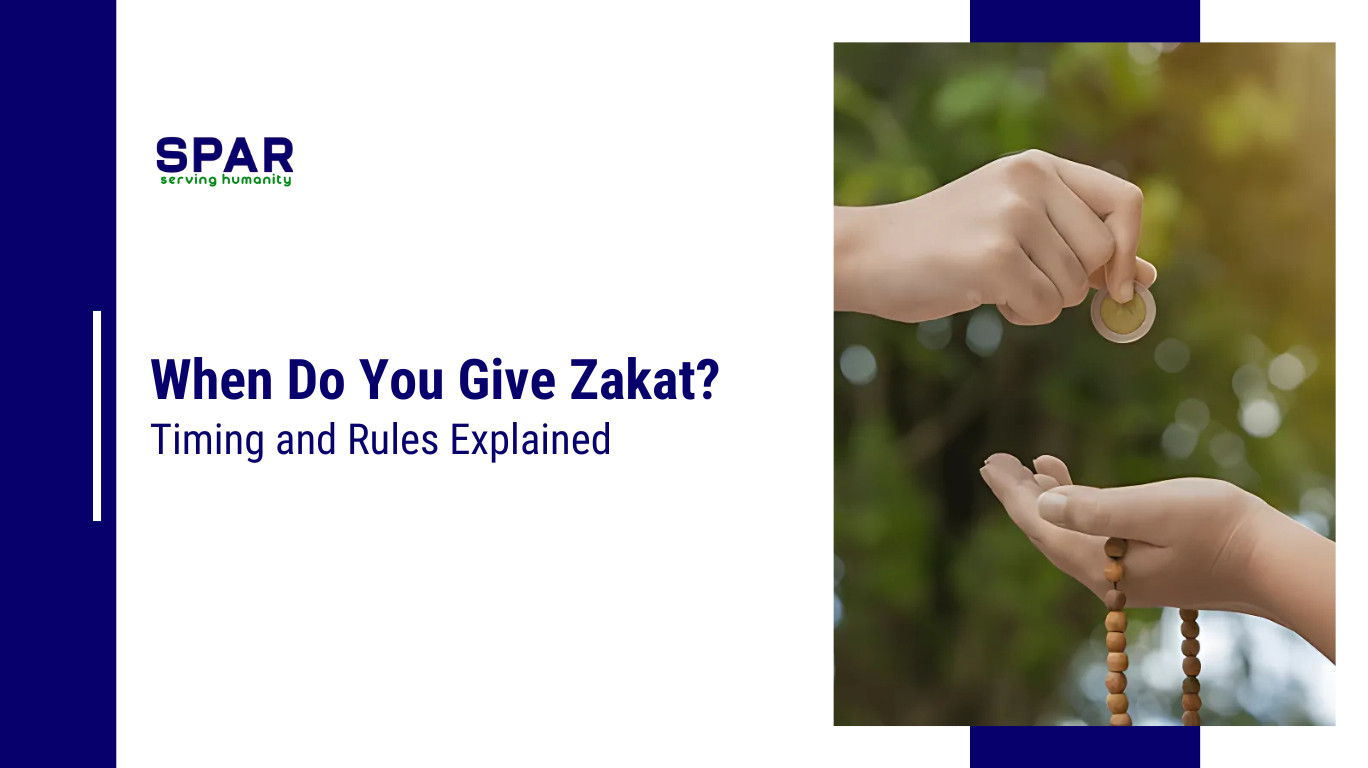When Do You Give Zakat? A Comprehensive Guide
Zakat is one of the Five Pillars of Islam. It is an act of mercy in which every eligible Muslim is obliged to take part. Many people ask, “When do you give Zakat?” They should, nevertheless, know the right time to pay Zakat. This guide will explain the timing, rules, and methods that would assist in fulfilling this obligation properly.
What Is Zakat?
Zakat essentially means obligatory charity that Muslims offer to Allah for the purification of their wealth and helping needy persons. It is 2.5% of one’s excess wealth. As opposed to voluntary charity, Zakat is a duty that must be carried out by those who fulfill the qualifying criteria.
The word “Zakat” means “purification” and “growth.” Giving Zakat purifies your wealth and helps you grow spiritually. It also supports those less fortunate and builds a sense of community.
Why Is Zakat Important?
Zakat is more than a financial duty; it strengthens the bonds between people. It serves these purposes:
- Purify wealth: It purifies your income and makes it blessed.
- Reduce inequality: It redistributes the wealth to reduce the gap between rich and poor.
- Strengthen the community: It promotes responsibility and unity among Muslims.
When to Pay Zakat?
You pay Zakat when your wealth exceeds the Nisab threshold after one complete lunar year. Now let us have a more excellent look at how you can determine when to pay Zakat.
Time of Zakat Payment
1. Follow the Lunar Year
Zakat is based on the Islamic or Hijri calendar. The Islamic year has 354 or 355 days about 10 days shorter than the Gregorian calendar. Your Zakat date might change every year gradually.
2. Ensure You Exceed the Nisab Threshold
Before you pay Zakat, ensure that one’s wealth has exceeded the Nisab threshold. Nisab means the minimum quantum of extra wealth beyond which Zakat becomes payable. It is defined by the value of gold or silver:
- Gold Nisab: 87.48 grams or 3 ounces
- Silver Nisab: 612.36 grams or 21 ounces
3. Remember Your Zakat Anniversary
The date when your wealth crossed Nisab quantity for the first time is your anniversary date. Every year on this date if your wealth is more than the Nisab, then you must pay Zakat
Best Times to Give Zakat
1. Ramadan
Ramadan is the most popular time to give Zakat. More rewarding acts of worship in this month make it a spiritually very significant time to give charity.
2. During Urgent Needs
One can give Zakat at the time of sudden urgent needs like natural calamities or humanitarian disasters. Timing your Zakat to help during emergencies can maximize its impact altogether.
3. On Your Zakat Anniversary
Set up a reminder for your Zakat anniversary date to keep a record of the date and time of Zakat payment every year. Pay regularly to maintain consistency in fulfilling this obligation.
How to Calculate Zakat
1. List Your Assets
The following items are to be included in your Zakat calculation.
- Cash: The cash in hand and in your bank accounts.
- Gold and Silver: As jewelry or in the form of investment
- Business goods: The items you have in stock to sell.
- Investment: stock, shares, or all other financial investments.
2. Deduct Liabilities
Now, subtract all your debts or bills you are payable immediately. This will give you your net wealth correctly.
3. Calculate 2.5%
After getting your net wealth, calculate 2.5% of the total. This is your payable Zakat amount.
4. Use Zakat Calculators
You can use online Zakat calculators for quick and accurate results.

Who Can Receive Zakat?
Zakat can only be given to specific groups of people as outlined in the Quran:
- The poor: people with little to no wealth.
- The needy: Those who struggle to meet basic needs.
- Zakat collectors: tasked with collecting and distributing Zakat.
- New Muslims: To support converts adjusting to their new faith.
- Captives: To help free enslaved individuals.
- Debtors: Those burdened by debts they cannot repay.
- In Allah’s cause: supporting efforts that benefit the community, such as education or public welfare.
- Travelers: Stranded individuals in need of help.
Mistakes to Avoid When Giving Zakat
1. Ignoring the Lunar Calendar
The usage of the Gregorian calendar might lead to errors in time. Always use the Islamic lunar calendar.
2. Forgetting Debts
This will only result in an overpayment because it does not account for the actual net amount. Subtract your liabilities before calculating Zakat.
3. Delaying Payments
Pay the Zakat as soon as it is due. In this way, the purpose of Zakat will be diluted.
4. Misusing Funds
The funds should be given to the aforementioned beneficiaries. For example, misusing the Zakat does not fulfill the obligation.
5. Not Keeping Records
Also, document your computation and payment record to show transparency in accountability.
Conclusion: when do you give zakat
Timing is everything when it comes to paying Zakat. If you follow the lunar calendar, then calculate your wealth on that basis. Otherwise, stick to your Zakat anniversary. Whether given in Ramadan or at any time of the year, Zakat is a means to cleanse one’s belongings and elevate the community.
Calculate your Zakat today and discharge the due right of Allan Subhanaahu Wa Ta’ala in your pursuit for a merciful world.
Can I pay Zakat in advance?
Yes, you can if you think you will reach the threshold of Nisab.
What if I forgot my Zakat date?
Estimate from previous calculation and continue the same from now on.
Can I pay Zakat in installments?
Yes, you can but complete the payment within a year
Does Zakat have to be paid on all of one’s wealth?
No, only specific assets are subject to Zakat, like savings, gold, and trading merchandise.
Can I pay Zakat to relatives?
Yes, you can pay Zakat to relatives who fall within the recipients mentioned in the Quran, except immediate family members—parents, children, or spouses.
What if my wealth fluctuates within a year?
You pay Zakat as long as your wealth has remained above Nisab for at least one complete lunar year.
How do I know that my Zakat will be accepted?
Keep your intention pure, and pay to the right recipients as ordained by the Quran.




 Secure
donation
Secure
donation